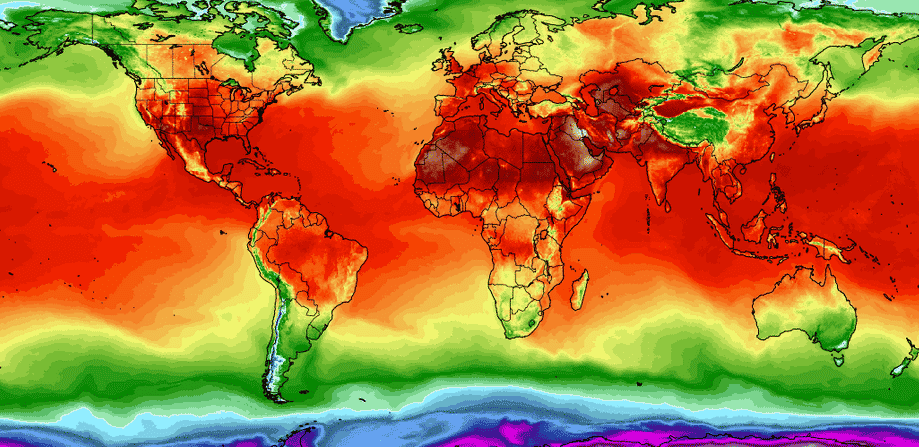
Why leaders should learn to value the boundary spanners
Entrepreneurial talent who work with other teams often run into trouble with their managers. Here are ways to get the most out of your ‘boundary spanners’...
Audio available

By Karl Schmedders and Maximilian Werner
Published 21 August 2023 in Management • 7 min read
As a blistering heatwave engulfs the Mediterranean, the devastating impact of rising temperatures has become increasingly evident. In Greece, thousands of tourists were forced to evacuate the island of Rhodes due to scorching conditions, while Algeria has witnessed tragic loss of life caused by wildfires, as has Maui. These extreme weather events are not isolated incidents; they signify a broader climate emergency that demands urgent attention from businesses worldwide.
Scientists are sounding the alarm, warning that the world is on the verge of reaching tipping points that could trigger irreversible changes. The possibility of Atlantic currents shutting down could result in Europe experiencing more intense winters and parched summers, posing significant challenges for various industries. The United Nations has declared a new “era of global boiling”, following what was officially the hottest month ever recorded (in July), necessitating a shift in business operations across sectors like tourism, manufacturing, and agriculture.
With every fractional degree of warming, extreme weather events are predicted to intensify and occur more frequently, posing growing concerns about the impact on worker output and labor availability.
Human-generated heatwaves are already adversely affecting the economy, with a recent study revealing a staggering estimated cost of $16tn to the global economy over a 21-year period starting from the 1990s. This economic impact, due to lost productivity and agricultural output as well as effects on human health, is expected to rise in the coming years as extreme heat conditions become increasingly prevalent.
The repercussions of scorching heat extend beyond outdoor industries like agriculture and construction, whose workers are particularly susceptible to heat exposure. Even indoor workers, especially those in factories or buildings without air conditioning, will encounter challenges as high temperatures sap productivity. The International Labour Organization predicts that by 2030, more than 2% of total working hours worldwide will be lost annually due to people either working at a slower pace or ceasing work altogether.
The effects of extreme heat are also anticipated to impact labor availability in regions experiencing such weather conditions, as workers are likely to seek refuge in cooler climates. Spain’s recent move to ban outdoor work during high-temperature periods, following the death of a street cleaner in Madrid, exemplifies the growing recognition of this challenge among businesses and policymakers.

Moreover, extreme heat poses potential disruptions to global supply chains. Heatwaves can strain energy markets by disrupting generating capacity while ramping up electricity demand due to increased cooling system usage. Last year, this helped propel European electricity prices to new records, amid a wider energy crisis in Europe triggered by Russia’s invasion of Ukraine.
Water scarcity is another significant consequence of elevated temperatures, affecting crucial sectors like agriculture and industrial production. The scarcity of water and the scorching heat has led to adverse effects on crops, causing higher prices and food insecurity, particularly impacting major olive oil producers like Spain, Italy, and Portugal.
The industrial and energy sectors depend on water for their production and cooling processes. Low water levels have previously reduced generating capacity and increased power prices in France, which relies on nuclear energy. Additionally, environmental concerns have arisen, exemplified by opposition to Tesla’s European “Gigafactory” in Germany due to concerns over water consumption (Tesla reportedly uses 3,000 liters of water for each car it manufactures).
Addressing the issue of water scarcity has become a matter of political importance, as evidenced by French President Emmanuel Macron’s recent plan to conserve water, a vital resource, in response to droughts in France. The growing awareness of water scarcity’s far-reaching implications underscores the importance of adopting strategies to ensure its responsible use and conservation.
Transportation is not immune to the effects of extreme heat. Low water levels in critical European waterways, such as the Rhine, have disrupted shipping, affecting the supply of key industrial commodities in 2018. Extreme heat can also damage infrastructure, including airport runways, train tracks, roads, and bridges, causing further potential transportation disruptions.
For businesses, it is imperative to prepare for the realities of a rapidly changing climate. Proactive action is vital, as the world hurtles towards projected temperature increases of 2.4C to 2.6C by 2100, exceeding the critical 1.5C threshold set by the Paris climate agreement. Companies should rethink their operational risk-management models and consider diversification strategies.
For one, disruptions to transportation will lead to higher consumer prices, likely driving the growing trend of nearshoring. This involves bringing production, previously offshore, closer to home to minimize supply-chain dislocations. The traditional “just-in-time” model, designed for a world without significant supply shocks, will face mounting challenges as global temperatures rise.

To reduce risks, diversification will be increasingly vital, and businesses should not overly concentrate supply or production in a single location. The importance of addressing these risks has been emphasized by lessons learned from events like the COVID-19 pandemic and the ongoing conflict in Ukraine.
In addition to potential economic impacts, businesses must prioritize employee well-being in the face of extreme heat events. Educating and training workers on recognizing and preventing heat-related illnesses is critical. Adjusting working hours to cooler periods (late evening or early morning shifts), promoting hydration, and implementing creative solutions, like midday siestas (as advocated for recently by doctors in Germany), can ensure a safer and more productive work environment.
When it comes to water, organizations need to be insulating their infrastructure against the very real risk of flash floods. It is worth considering whether you position facilities, such as cellars or factories near creeks or at the base of hills, possibly leading to challenges when these water bodies reach capacity.
Moreover, the potential presence of sensitive materials or IT equipment in basements raises questions about their vulnerability in such scenarios. Companies should also contemplate the deployment of pumping systems, reliant on electricity, as a preventative measure to mitigate or circumvent damages caused by water overflow.
More broadly, it will be important to explore strategies for water management, such as desalination or wastewater recycling (removing salt and other impurities).
More and more companies need to have plans for longer or repeated electricity outages. Organizations should ask themselves these crucial questions: Is there an ample supply of diesel to sustain emergency generators? In situations where power remains unavailable for several days, and generators must operate continuously, how is diesel sourced if electrically powered pumps are needed to draw from storage tanks?
Even sectors like agriculture must now prepare for power disruptions. Consider dairy farmers who rely on milking machines; swiftly hand-milking hundreds of cows is implausible. Likewise, the maintenance of optimal conditions within barns housing lots of animals necessitates cooling systems, especially during hot weather.
Lastly, the projected rise in insurance costs poses affordability challenges for businesses seeking protection against adverse weather. To navigate the forthcoming era of “global boiling”, companies need to anticipate and mitigate extreme heat risks.
Companies should monitor weather forecasts and warnings issued by relevant authorities.
Being proactive, organizations may also consider increasing buffer stocks in production to mitigate potential shortages of materials and components. By taking decisive action now, organizations can strengthen themselves against the economic and operational challenges posed by increasingly frequent and extreme weather events.

Professor of Finance at IMD
Karl Schmedders is a Professor of Finance, with research and teaching centered on sustainability and the economics of climate change. He is Director of IMD’s online certification course for structured investment and also teaches in the Executive MBA programs and serves as an advisor for International Consulting Projects within the MBA program. Passionate about sustainable finance, Schmedders believes that more attention needs to be paid to on the social (S) and governance (G) aspects of ESG to ensure a fair transition and tackle inequality.

Associate Director at IMD’s Venture Asset Management Initiative
Maximilian Werner is Associate Director at IMD’s Venture Asset Management Initiative. As a trained mathematician, he holds a PhD from the University of Zurich, where he also has lectured on computational economics and finance. He spent six years in the private sector working as a consultant, data expert, and energy trader.

July 3, 2025 • by Eric Quintane in Audio articles
Entrepreneurial talent who work with other teams often run into trouble with their managers. Here are ways to get the most out of your ‘boundary spanners’...
 Audio available
Audio available
June 24, 2025 • by Jerry Davis in Audio articles
The tech broligarchs have invested heavily in Donald Trump but are not getting the payback they bargained for. Do big business and the markets still shape US government policy, or is the...
 Audio available
Audio available
June 19, 2025 • by David Bach, Richard Baldwin, Simon J. Evenett in Audio articles
As governments lock horns in our increasingly multipolar world, long-held assumptions are being upended. Forward-looking executives realize the next phase of globalization necessitates novel approaches....
 Audio available
Audio available
June 2, 2025 • by George Kohlrieser in Audio articles
Leadership Honesty and courage: building on the cornerstones of trust by George Kohlrieser Published 17 April 2025 in Leadership • 5 min read DownloadSave Trust is the bedrock of effective leadership. It...
 Audio available
Audio availableExplore first person business intelligence from top minds curated for a global executive audience